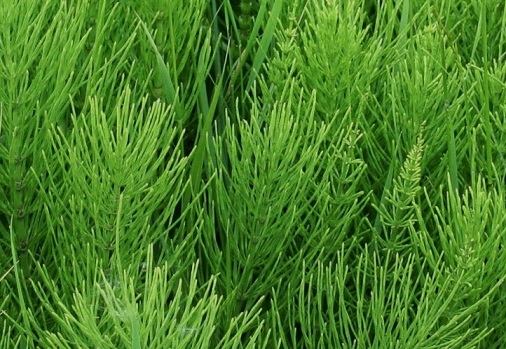Polish Study Finds That Field Horsetail Plant Extract Shields Red Blood Cells from Damage and Stress
Nikhil Prasad Fact checked by:Thailand Medical News Team Mar 31, 2025 3 weeks, 1 day, 15 hours, 1 minute ago
Medical News: Ancient Plant Offers New Hope for Protecting Blood Cells from Oxidative Damage
Researchers in Poland have uncovered the remarkable protective properties of a natural plant extract derived from Equisetum arvense, commonly known as field horsetail. Traditionally used in folk medicine, this unassuming plant may hold powerful benefits for blood health, particularly in preventing damage to red blood cells caused by oxidative stress.
 Polish Study Finds That Field Horsetail Plant Extract Shields Red Blood Cells from Damage and Stress
Polish Study Finds That Field Horsetail Plant Extract Shields Red Blood Cells from Damage and Stress
The study was a collaboration between scientists from the Wrocław University of Environmental and Life Sciences, the University of Rzeszow, and the Department of Fruit, Vegetable, and Plant Nutraceutical Technology in Wrocław. Together, they tested the polyphenolic extract from field horsetail (referred to as HLE) on red blood cells and their membranes using a range of laboratory techniques.
Field horsetail contains a rich blend of plant-based compounds like flavonoids and phenolic acids, which have long been known for their antioxidant and healing properties. This
Medical News report delves into how these compounds not only protect red blood cells from harm but also improve their membrane stability and resilience under stress.
How the Plant Extract Works Inside the Body
The researchers began by analyzing the chemical makeup of the horsetail extract. They identified 12 different polyphenolic compounds, with quercetin derivatives making up over 61% of the total content. These compounds are well-known for their strong antioxidant and anti-inflammatory actions. Another important compound present in the extract was a caffeoyl tartrate isomer, which has unique biological properties.
When tested on red blood cells (erythrocytes), the HLE extract showed no toxic effects even at high doses. Using electron microscopy, the scientists observed that the extract caused subtle shape changes in the cells but did not damage them. This suggests the extract binds to the cell membrane’s outer surface, altering its curvature slightly without causing harm.
In addition, the extract did not lower levels of glutathione - a key antioxidant found in red blood cells - even when the cells were exposed to harmful oxidizing chemicals like AAPH. In fact, at the highest dose, HLE slightly boosted glutathione levels, indicating it may help cells fight off oxidative stress more effectively.
A Natural Antioxidant Barrier
One of the standout discoveries from the study was how HLE functioned as a barrier against free radicals. In tests simulating oxidative damage, red blood cells treated with the extract were better protected against hemolysis (cell bursting). Although its antioxidant performance was slightly less effective than vitamin C and Trolox (a vitamin E analog), HLE still offered significant protection.
Further studies showed that the extract altered the membrane’s electrical charge by reducing its dipole po
tential. This means the extract might improve the membrane's stability and reduce its vulnerability to damage. Moreover, while it didn't change the structure of the membrane’s inner fatty core, HLE did disrupt the organization of its outer layer - a sign that the active compounds mostly act on the membrane surface.
Unique Bioactivity with Therapeutic Promise
The researchers concluded that the extract’s active ingredients, especially quercetin derivatives, anchor themselves on the outer part of the red blood cell membrane, where they intercept harmful molecules like free radicals. These interactions help prevent oxidative damage and may also stabilize the cell’s shape and electrical balance.
In tests measuring the breakdown of lipids during oxidative stress, HLE again proved its effectiveness. It reduced the levels of malondialdehyde (MDA), a chemical marker of lipid peroxidation, especially in cases where cells were exposed to damaging UVC radiation or free radical agents.
Conclusion
The study clearly shows that the polyphenolic extract of field horsetail offers multiple protective effects for red blood cells. It shields the membranes from oxidative stress, helps maintain the electrical balance of the cells, and does all of this without being toxic. These findings point to the potential of horsetail extract as a natural supplement to support cardiovascular health and blood integrity. While more human trials are needed to confirm the full range of benefits, this natural compound may one day be used in dietary supplements or functional foods to help prevent blood-related disorders and improve vascular resilience.
The study findings were published in the peer reviewed International Journal of Molecular Sciences.
https://www.mdpi.com/1422-0067/26/7/3213
For the latest on Herbs and Phytochemicals, keep on logging to Thailand
Medical News.
Read Also:
https://www.thailandmedical.news/news/insights-into-red-blood-cell-abnormalities-in-covid-19-patients
https://www.thailandmedical.news/news/long-covid-and-the-hidden-changes-in-red-blood-cells
https://www.thailandmedical.news/news/covid-19-causes-morphological-changes-of-red-blood-cells-leading-to-microangiopathy-microthrombosis-impaired-blood-flow-tissue-oxygenation
https://www.thailandmedical.news/pages/thailand_doctors_listings
https://www.thailandmedical.news/articles/hospital-news
https://www.thailandmedical.news/pages/thailand_hospital_listings
